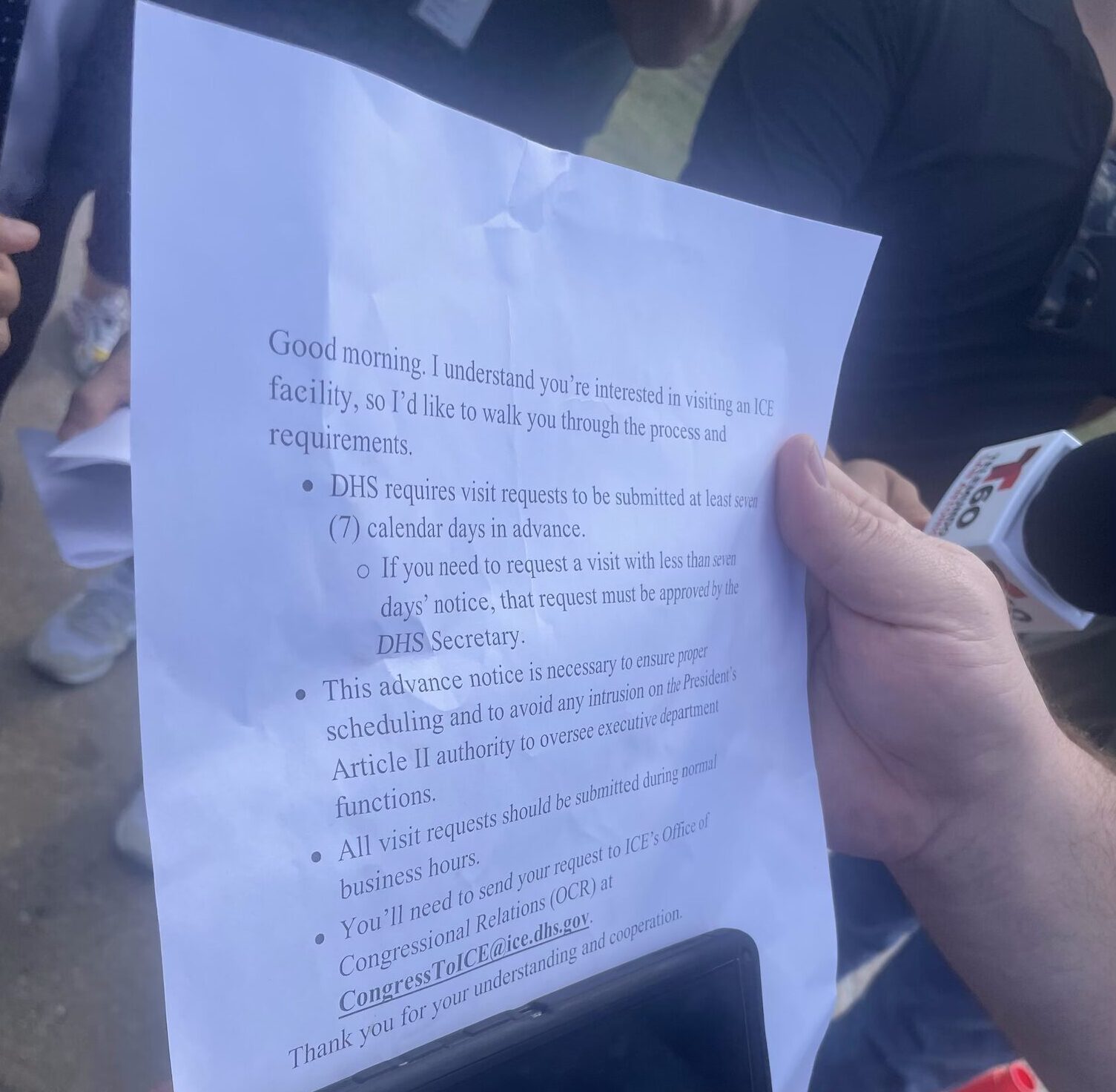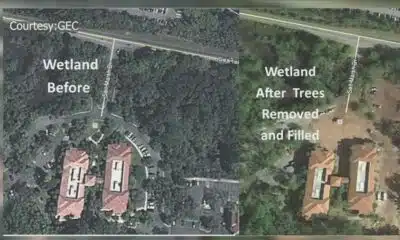News from the South - Texas News Feed
Great Scottie! Scheffler pulls away to win PGA Championship for 3rd major title
SUMMARY: Scottie Scheffler overcame a tense moment in the final round of the PGA Championship, where his five-shot lead dwindled to nothing. Jon Rahm closed in, but Scheffler responded with steady play, including a crucial birdie on the 15th. Rahm faltered with a series of mistakes, allowing Scheffler to regain control and secure a five-shot victory with a final score of 11-under 273. This win marked his third major title and solidified his status as the No. 1 player in golf. Scheffler’s consistency and ability to perform under pressure were key to his triumph at Quail Hollow.
The post Great Scottie! Scheffler pulls away to win PGA Championship for 3rd major title appeared first on www.kxan.com
News from the South - Texas News Feed
'Bathroom bill' advances in Texas House days after tensions flared at hearing
SUMMARY: A Texas House panel approved Senate Bill 8, limiting transgender people’s use of bathrooms in government buildings, marking the first House advancement of a “bathroom bill” in over eight years. The bill, backed by Gov. Greg Abbott, passed 9-3 in committee and now heads to the House floor. SB 8 imposes penalties on institutions allowing restroom use not matching sex assigned at birth and extends restrictions to schools, universities, shelters, prisons, and jails. Opponents warn it promotes harassment and violence, while supporters cite protection of women and children. The bill includes measures to shield it from legal challenges. Lawmakers must pass bills by Sept. 13.
The post 'Bathroom bill' advances in Texas House days after tensions flared at hearing appeared first on www.kxan.com
News from the South - Texas News Feed
Texas House Republicans vote against retroactive punishments for quorum breakers
SUMMARY: A week after Texas House Democrats fled to block Republicans’ redistricting vote on the “Big, Beautiful Map,” Republicans are pushing bills to punish or prevent future quorum breaks. Proposed measures include banning fundraising during quorum breaks, vacating seats after seven unexcused absences, and lowering the quorum threshold from two-thirds to a simple majority. While Republicans support these bills, they failed to censure the Democrats. Democrats face fines exceeding $9,000 each for their absence, including costs for Texas DPS efforts to return them. Additionally, a Senate proposal aims to ban fundraising during special sessions to deter quorum breaks and save taxpayer money.
Read the full article
The post Texas House Republicans vote against retroactive punishments for quorum breakers appeared first on www.kxan.com
News from the South - Texas News Feed
Dems in Congress Are Being Denied Access to ICE Facilities. Now They’re Suing.
At least a dozen Democratic members of Congress have been denied entry to federal immigration facilities this year when they showed up to conduct oversight as President Donald Trump has ramped up his mass deportation efforts. Now, they are suing the Trump administration.
The lawsuit was filed in the federal district court for the District of Columbia on July 30 by 12 Democrats from the House of Representatives, including El Paso Congresswoman Veronica Escobar, who has provided oversight of such facilities for several years.
“As part of its campaign of mass deportation, the Trump-Vance administration has stretched the U.S. immigration detention system far beyond its capacity. More people are being held by the United States in immigration detention than ever before, with many facilities housing more individuals than they were built to contain,” the lawsuit states. “Reports of mistreatment have been widespread and have included disturbing details of overcrowding, food shortages, lack of adequate medical care, and unsanitary conditions.”
Since 2019, Congress has adopted statutory provisions stating that the Department of Homeland Security (DHS) may not use federal funds may to prevent members “from entering, for the purpose of conducting oversight, any facility operated by or for the Department of Homeland Security used to detain or otherwise house” noncitizens, per the lawsuit. Those mandates for unfettered oversight were a direct response to Trump’s attempts to block members of Congress under his first administration.
However, since June, several members of Congress have been turned away when attempting to enter and examine federal immigration facilities, including privately run detention centers and ICE field offices where immigrants have been detained.
Escobar currently serves on the House Appropriations Committee and its Subcommittee on Homeland Security, which oversees DHS. In her six years serving Congress, she and her staff members have conducted numerous visits to DHS facilities, and identified issues that saved taxpayers money or improved facility conditions for detainees. Prior to this year, she had only been turned away once, in 2019, from a facility when attempting to conduct oversight.
“It is not acceptable for the Trump administration to ignore the law and limit Congressional oversight and authority; this cannot go unchallenged,” Escobar said in a statement announcing the lawsuit.
U.S. Representative Greg Casar, an Austin Democrat, is among the latest members of Congress to be turned away when requesting to conduct oversight. On August 15, Casar attempted to access the Don T. Hutto Detention Center in Taylor, which is operated by DHS contractor CoreCivic, after receiving complaints that the air conditioning was not functioning properly and that detainees were “boiling.” The congressman, along with Austin-based attorney Andrea Jarero, who was trying to visit a client, were both denied access by CoreCivic.
When journalists, activists, Casar and his staff arrived at the detention facility, CoreCivic employees had blocked off access to the building’s parking lot with traffic cones and two white vans. A CoreCivic employee exited his vehicle and told Casar he’d need to schedule any visits at least seven days in advance. “This advance notice is necessary to ensure proper scheduling and to avoid any intrusion on the President’s Article II authority to oversee executive department functions,” the employee said, reading from a piece of paper.
The statutory provisions of recent DHS appropriations bills explicitly say that they may not “be construed to require a Member of Congress to provide prior notice of the intent to enter a [DHS] facility.” However, per the lawsuit, the Trump administration has unilaterally enacted a new policy that requires seven calendar days’ notice ahead of any visit to a DHS facility.
“What are they hiding, if they will break the law and not let a member of Congress in?” Casar said. “What are they hiding if they’ll violate constitutional rights and not let a lawyer in?”
Casar said that he intends to join his fellow Democratic members of Congress as a plaintiff in the lawsuit—though he has not done so yet.

Texas has the largest immigration detention capacity in the country, putting the state on the front lines of Trump’s mass deportation agenda. As of early August, more than 13,000 immigrants were detained in Texas facilities, according to data from the Transactional Records Access Clearinghouse (TRAC)—far more than any other state. That number will likely continue to grow: a new, $1.24-billion immigrant detention camp opened last week on Fort Bliss, a military base in El Paso, and is poised to be the nation’s largest once it reaches its full capacity to hold 5,000 people. (Escobar was allowed to access that facility on August 18 and said it held 1,000 detainees at that time, though she was not able to speak to any.)
Recent events bring new urgency to immigrant detention inspections: As of late June, 13 people had died in ICE detention this fiscal year—which is the same amount of deaths for the entirety of fiscal year 2024. (A report from several advocacy groups found that dozens of deaths between 2017 and 2021 in ICE detention facilities could have been prevented with adequate medical care.)
Additionally, more people are detained in ICE custody than ever before, and that number will likely continue to grow. The agency is also set to receive historic levels of funding; HR 1, Congress’ recent tax cuts-and-spending bill, contains $75 billion for ICE detention and removal operations.
As spending ramps up, oversight mechanisms have been stifled. Earlier this year, the Trump administration gutted some of the entities tasked with facility oversight, including the Office of the Immigration Detention Ombudsman. Escobar, the El Paso Democratic House member, said oversight is supposed to be multi-layered, but now “Trump has effectively done away with government watchdogs,” she told the Texas Observer.
Since the other agencies tasked with holding DHS accountable in detention centers have had major staff cuts, the role of members of Congress in conducting oversight of immigration detention is more important than ever, she said.
“There’s absolutely no reason for [DHS Secretary] Kristi Noem to block members of Congress from our legal ability to enter a facility unannounced,” Escobar said. “Unless she believes she has something to hide.”
The post Dems in Congress Are Being Denied Access to ICE Facilities. Now They’re Suing. appeared first on www.texasobserver.org
Note: The following A.I. based commentary is not part of the original article, reproduced above, but is offered in the hopes that it will promote greater media literacy and critical thinking, by making any potential bias more visible to the reader –Staff Editor.
Political Bias Rating: Center-Left
The content primarily focuses on criticism of the Trump administration’s immigration policies and their handling of oversight for immigration detention facilities. It highlights Democratic lawmakers’ efforts to conduct oversight and challenge restrictions imposed by the administration, emphasizing issues such as overcrowding, inadequate medical care, and detainee mistreatment. The piece also underscores government watchdog reductions under Trump and conveys skepticism toward officials enforcing access restrictions. While it presents factual information and quotes from Democratic representatives, the overall tone and framing favor a progressive viewpoint critical of conservative immigration enforcement, aligning it with a center-left bias.
-
News from the South - Alabama News Feed7 days ago
U.S. agriculture secretary announces end to subsidies for solar panels on farmland
-
News from the South - Kentucky News Feed6 days ago
First of its kind clinical trial offers new hope for Kentuckians at risk of dementia
-
News from the South - West Virginia News Feed7 days ago
Free AI testing platform rolled out to federal employees
-
News from the South - Arkansas News Feed6 days ago
Cities across the US are embracing AI guidelines for local government workers
-
News from the South - Georgia News Feed7 days ago
Don't eat this shrimp sold at Walmart due to possible radiation contamination: FDA
-
News from the South - Alabama News Feed6 days ago
Grants to boost local emergency alert systems in question as public media agency closes
-
News from the South - Arkansas News Feed4 days ago
New I-55 bridge between Arkansas, Tennessee named after region’s three ‘Kings’
-
News from the South - Arkansas News Feed6 days ago
‘Alligator Alcatraz’ probed by Dems as ICE detention centers multiply in states












































